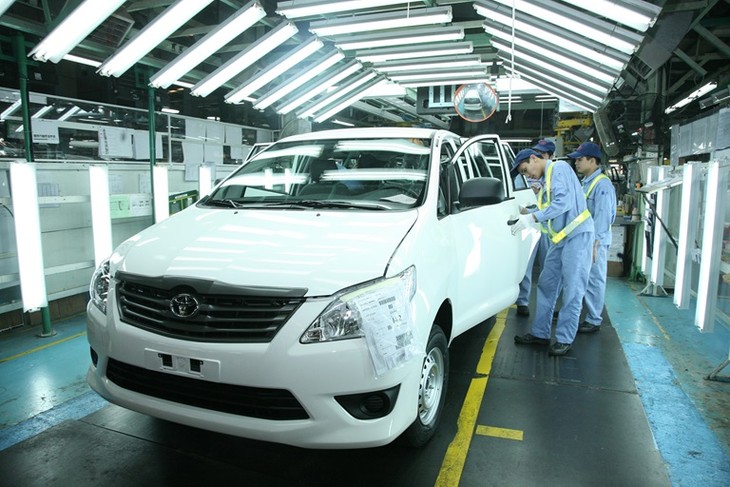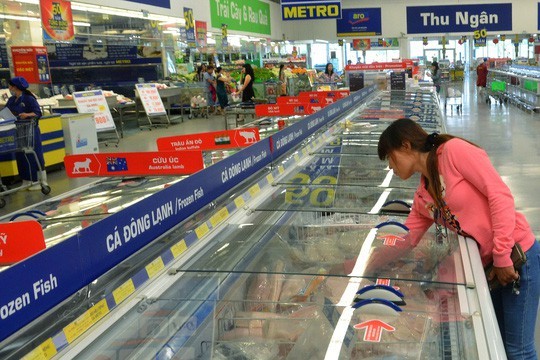(VOVWORLD) - FDI businesses have contributed remarkably to Vietnam’s economy and received many incentives when investing in the country. But a number of them have made corrupt use of Vietnam’s preferential treatment to practice transfer pricing for tax evasion, causing big losses to the State budget collection and creating an unfair competitive environment. To combat the situation, Vietnam’s functional agencies are improving the legal corridor to ensure transparency in the investment environment and combat tax revenue losses.
 FDI enterprises contribute significantly to the economy (Photo: vietnamnet.vn) FDI enterprises contribute significantly to the economy (Photo: vietnamnet.vn) |
According to the Department of Corporate Finance of the Finance Ministry, as of the end of 2016, 61% of FDI enterprises reported losses, higher than during the previous years.
Between 2012 and 2016, up to 51% of FDI enterprises reported yearly losses. Metro Cash & Carry Vietnam was among the FDI companies found to have used transfer pricing after 12 years operating in Vietnam. It had to pay more than 23 million USD in tax arrears.
Recently the Malaysian company Grab has repeatedly reported losses. Grab Vietnam had charter capital of more than 891,000 USD but claimed they incurred a staggering three-year loss of 42 million USD.
There is also the phenomenon of transfer pricing or transfer of profits from foreign countries into Vietnam by a number of FDI enterprises entitled to big corporate income tax reduction or exemption incentives.
Bui Ngoc Tuan, Deputy General Director of the Audit and Advisory firm Deloitte Vietnam, said Vietnam has one of the lowest corporate income tax rates. The tax difference with other countries has created opportunities for businesses to transfer their profits to minimize their taxes.
“The current corporate income tax rate of 20% is applied to all companies across economic sectors. This tax rate is quite low. This is a big incentive on top of the other incentives and the friendly investment environment for foreign investors in the region. Singapore is the only country in the region with a lower tax rate,” said Tuan.
 Metro Cash & Carry Vietnam was among the FDI companies found to have used transfer pricing after 12 years operating in Vietnam (Photo: Tan Thanh/cafef.vn) Metro Cash & Carry Vietnam was among the FDI companies found to have used transfer pricing after 12 years operating in Vietnam (Photo: Tan Thanh/cafef.vn) |
An analysis of FDI companies’ performance shows that their contribution to state revenues is low and not proportional to the preferential treatment they have been given. Many are taking advantage of strong investment incentives such as land rents, corporate income tax, and personal income tax, to transfer prices and profits.
Nguyễn Thị Lan Anh, Deputy Director of the Inspection Department of the General Department of Taxation, Finance Ministry, said the common forms of transfer pricing in Vietnam are mainly through the transfer of tangible and intangible assets, the provision of services, loans, or financial transactions.
Lan Anh said Vietnam’s tax agencies are studying the problem and fine-tuning the laws governing the income of FDI companies.
She added: “We will develop a database of FDI enterprises to help the tax sector to control transfer pricing. In addition, we will increase information exchanges between ministries, sectors, and international players, especially information related to transfer pricing.”
Many economists have noted the need to consider the current investment incentive framework and re-establish the balance between “profit-based” and “efficiency-based” preferential policies.
They also called for improving the list of areas to receive preferential treatment to identify the actual FDI enterprises, business environment, and human resources, while tax incentive regulations should be made more transparent to avoid overlap.